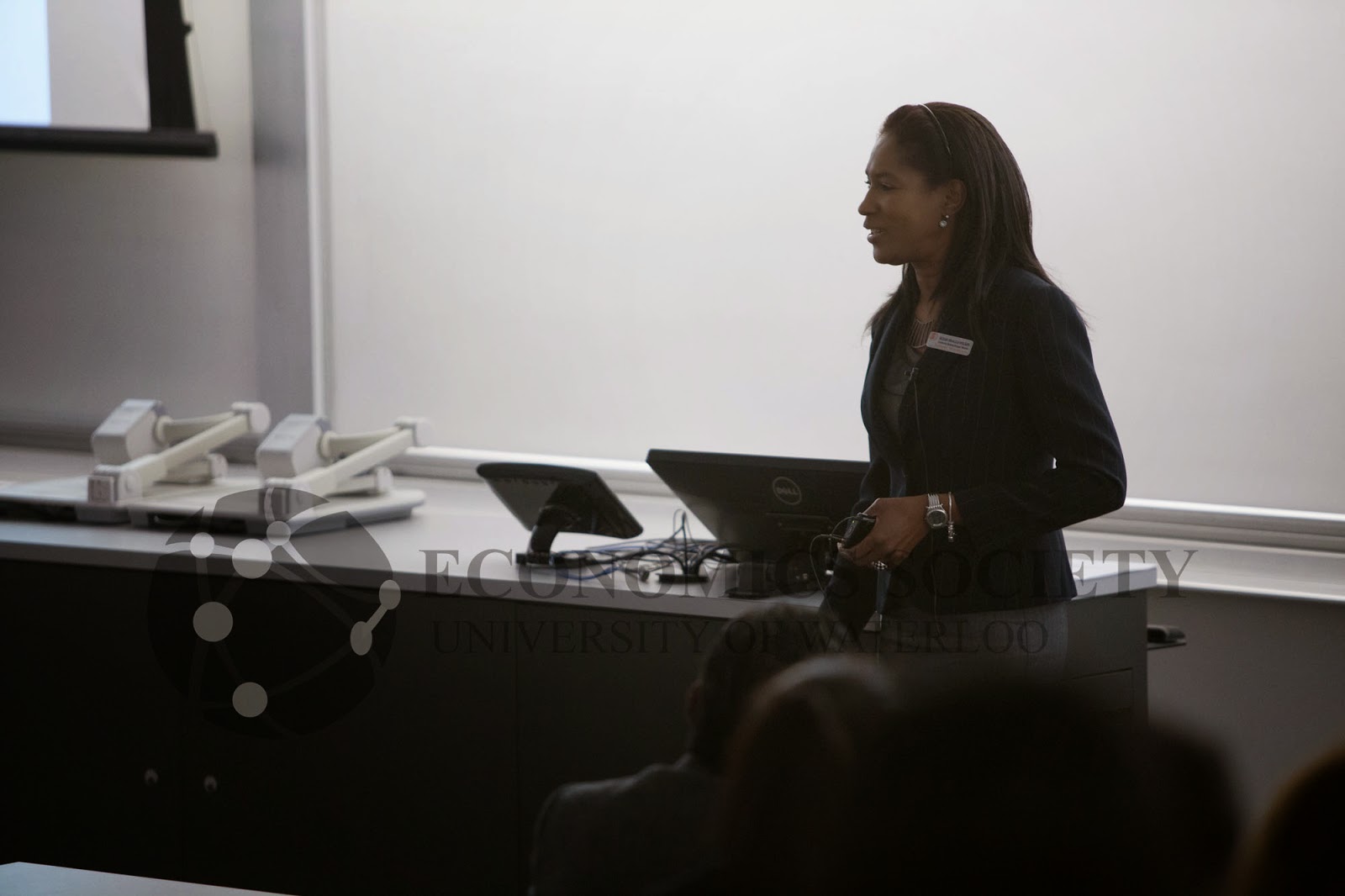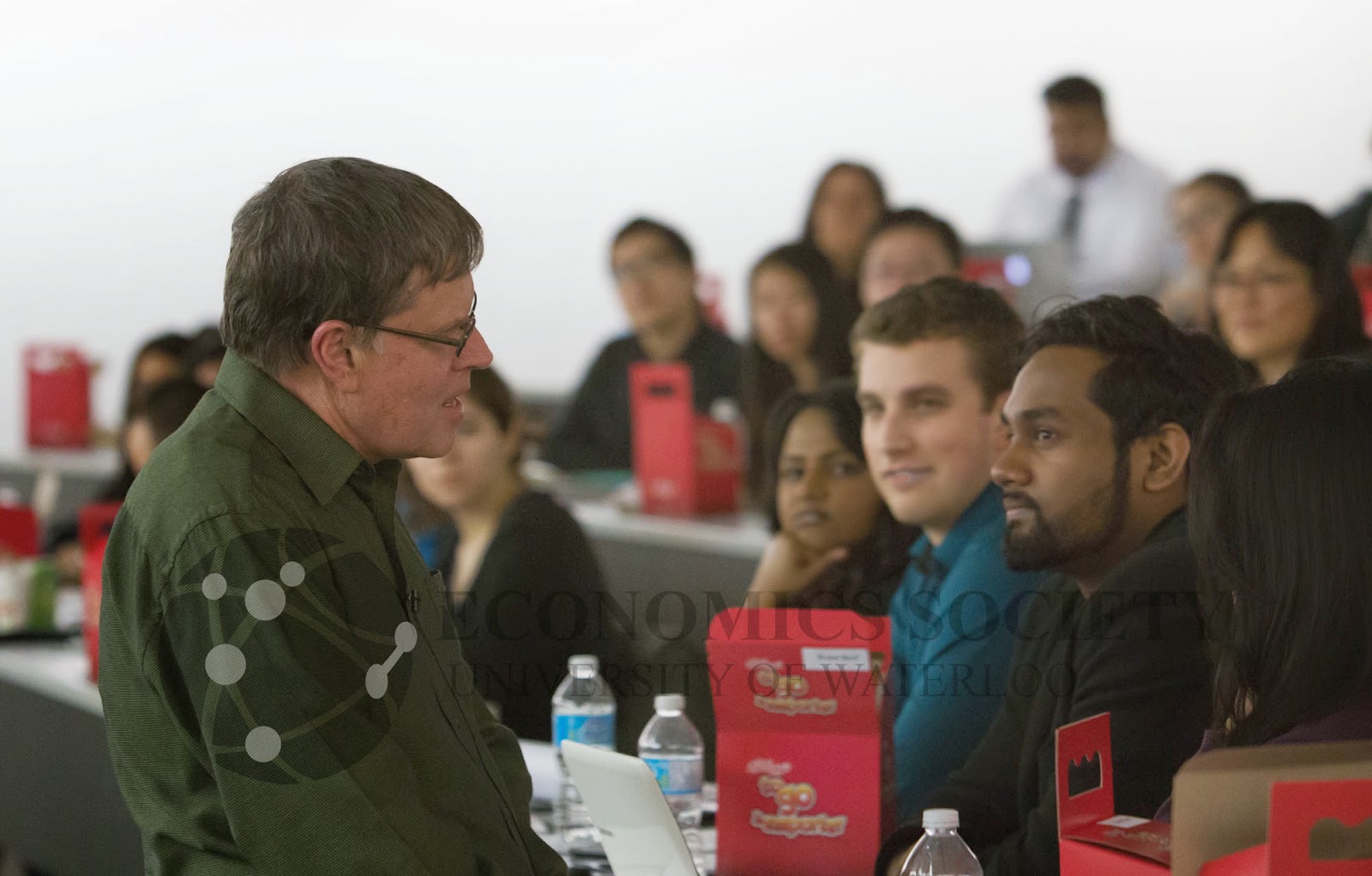of marginal benefit
A blog by the UW Economics Society for students at the University of Waterloo. This website provides updates on academic resources and social events!
Wednesday, 16 April 2014
Tuesday, 8 April 2014
April News Letter
Link To Online PDF
This month's issue feature an article from UW alumni and Former Economics Society Executive Eric Chung as well as the highlights from the eConference: What's Next.
This month's issue feature an article from UW alumni and Former Economics Society Executive Eric Chung as well as the highlights from the eConference: What's Next.
Thursday, 20 March 2014
Canada is not engaged in this new world
I found this editorial in the Globe and Mail and thought it was an interesting summary of the current state of world affairs highlighting the lack of preparedness and lack of involvement of Canada. Though not strictly related to economics, the world has changed drastically in a short period of time. Political apathy amount young voters in Canada and a lack of real action in foreign policy are economically relevant especially to our generation.
http://www.theglobeandmail.com/globe-debate/canada-is-not-engaged-in-this-new-world/article17551097/#dashboard/follows/
Terror attacks, secessionist movements, domestic wars, sabre-rattling maritime disputes, ethnic clashes, the spread of nuclear weapons and the return of great-power rivalries. Today’s world is a very uncertain place, with more points of conflict, real or possible, than would have been thought likely not long ago.
http://www.theglobeandmail.com/globe-debate/canada-is-not-engaged-in-this-new-world/article17551097/#dashboard/follows/
Terror attacks, secessionist movements, domestic wars, sabre-rattling maritime disputes, ethnic clashes, the spread of nuclear weapons and the return of great-power rivalries. Today’s world is a very uncertain place, with more points of conflict, real or possible, than would have been thought likely not long ago.
Russia will envelop Crimea, thereby establishing an ominous precedent that through manipulation and force, it can wrest territory from another country. Having succeeded in Crimea, will Russia now try the same tactic in eastern Ukraine, with its large Russian-speaking population? Or in the Caucasus, or the “-stans” of Central Asia where centralized Soviet control once prevailed?
What Russia displays today is great-power muscle, with scant regard for international law or human rights. As President Vladimir Putin’s Foreign Ministry argued last year in a major policy paper, Russia laments “the risk of destructive and unlawful use of human rights concepts to exert political pressure on sovereign states.” What counts instead is “civilizational identity,” the paper asserted.
Whereas people in the West might have considered Russia part of Western civilization, especially once freed from the shackles of communism, Mr. Putin does not. Instead, Russia and its adjoining sphere equate to another civilization, quite different in history, culture, political institutions and worldview than the West. Murkier still are the currents that swirl in the intellectual depths of the Kremlin about the Russian soul and Russia’s special mission to bring civilization to the world.
This Russian chauvinism, for which the West has a very inadequate response, mirrors China’s desire to reassert its domination over a sphere of influence in its near Pacific. The maritime and air-defence disputes China has provoked have put it at odds with Japan, Vietnam, the Philippines, Brunei and Malaysia, the most serious conflict being with arch-rival and old enemy Japan.
Add to this the unpredictability of North Korea, with its nuclear program and systematic oppression of its own people, and you have a region rife with uncertainty. To which might be added poor relations between Japan and South Korea.
By acting as great powers, the Russians and Chinese produce two counter-reactions. First, states around them fear their pressure and invite others (read: the United States) to help them resist. Second, by asserting their civilization’s mission, they alarm internal minorities, as with Chechens in Russia and Uyghurs in China, both of which have produced terrorist organizations.
Although terrorism no longer threatens the West’s fundamental security (as was once thought possible), it is nonetheless a far-flung menace, from the Saharan region to northern Nigeria, parts of the Middle East (Afghanistan, Iraq, Pakistan), southern Thailand, China, Russia and India.
Civil strife rips countries apart, as in Syria and Iraq. In Libya, where North Atlantic Treaty Organization bombs helped remove Moammar Gadhafi from power, what remains are warring clans and chieftains with only a shadow of central authority. In Lebanon, the shakiest of civil peace prevails. Massive but peaceful demonstrations have shaken Turkey, Venezuela, Egypt and Thailand, among others. In three countries stitched together a long time ago, secessionists in Scotland, Catalonia and Quebec wish to make independence for their nations.
Where does Canada fit into this world picture, nicely traced in a recent “strategic outlook” paper for the Conference of Defence Associations? Very far from a deep strategic engagement – geographically, mentally and in terms of preparedness.
The foreign aid budget is going down. Foreign Affairs is losing staff. The last round of defence budget cuts melted 12 per cent of departmental resources. Procurement delays for new equipment are endemic. We ask the military to do too much with too little. We have too many military bases, but the politics of closing them remains difficult.
Canada no longer tries, however feebly, to help resolve or mediate international disputes. Rather, Ottawa chooses sides and then offers little beyond rhetoric and finger-pointing.
The government’s own most recent foreign policy paper was exclusively about marketing Canadian products abroad in selected markets – a perfectly valid part of any international engagement, but given the challenges of the world, hardly a complete one.
Subscribe to:
Comments (Atom)








































